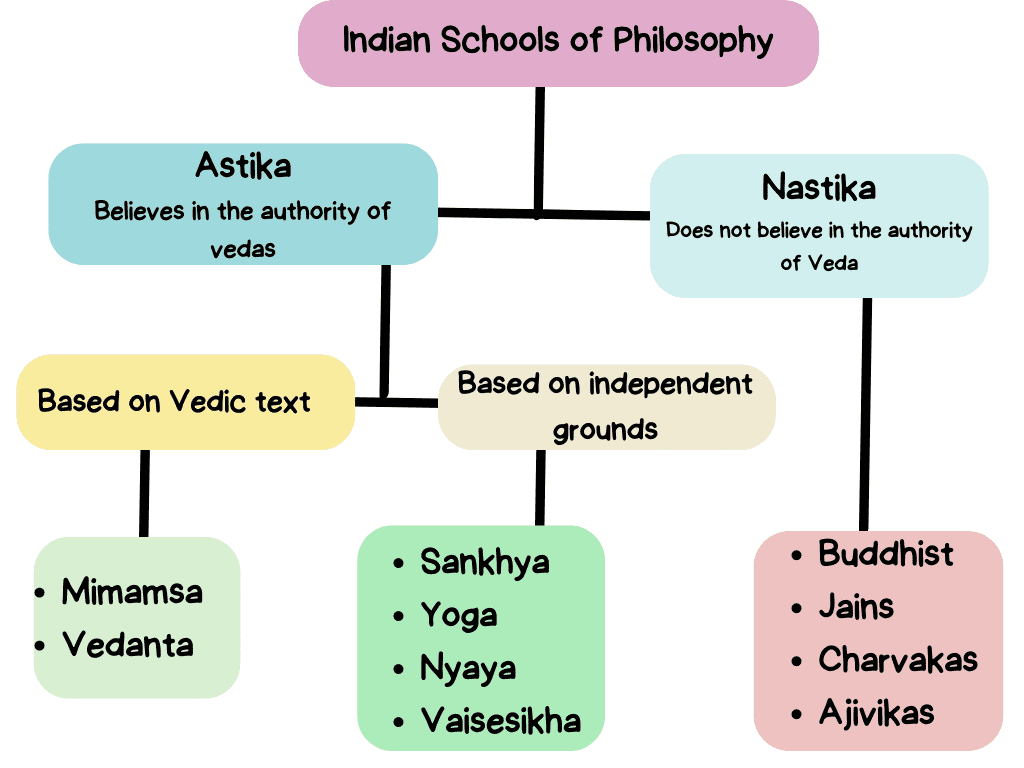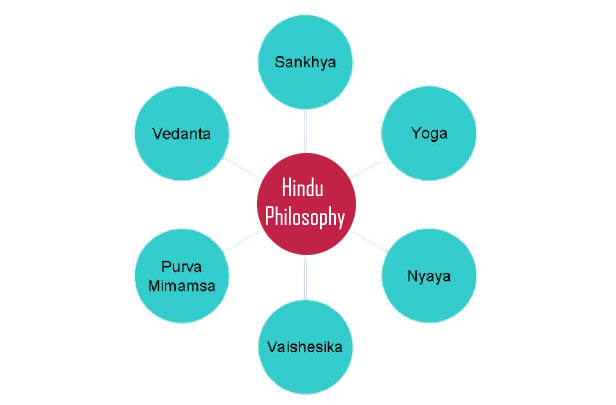Indian Philosophy
Table of Contents
Introduction to Indian Philosophy
Indian philosophy is a profound and intricate system of thought that has evolved over millennia. It encompasses a variety of traditions and beliefs, each contributing unique perspectives on existence, knowledge, and the nature of reality. But why is Indian philosophy so important, and why should we care about it today? Let’s delve into this ancient wisdom and explore its relevance in our modern world.
Historical Background
Indian philosophy’s roots can be traced back to ancient civilizations along the Indus River, dating as far back as 3000 BCE. The earliest records are found in the Vedas, a collection of hymns and rituals that form the foundation of Hindu philosophy. Over centuries, a rich tapestry of philosophical thought emerged, documented in texts like the Upanishads, Bhagavad Gita, and the works of countless sages and scholars.
Main Schools of Indian Philosophy
Indian philosophy is incredibly diverse, but it can be broadly categorized into six orthodox (astika) and several heterodox (nastika) schools. The orthodox schools accept the authority of the Vedas, while the heterodox ones do not. Understanding these schools provides a comprehensive overview of the vast landscape of Indian philosophical thought.

Hindu Philosophy
Vedas and Upanishads
The Vedas are the oldest scriptures of Hinduism, containing hymns, rituals, and philosophical teachings. The Upanishads, considered the end part of the Vedas (Vedanta), delve into metaphysical questions and explore the nature of reality, the self, and the ultimate truth (Brahman).
Vedanta
Vedanta is a major school of Hindu philosophy that interprets the teachings of the Upanishads. It has several sub-schools, including Advaita (non-dualism), Vishishtadvaita (qualified non-dualism), and Dvaita (dualism), each offering different perspectives on the relationship between the self and the ultimate reality.
Yoga and Samkhya
Yoga and Samkhya are closely related schools focusing on the path to spiritual liberation (moksha). Yoga, particularly as outlined in Patanjali’s Yoga Sutras, emphasizes the importance of meditation, ethical living, and physical discipline. Samkhya, on the other hand, is a dualistic philosophy that categorizes all aspects of reality into two fundamental principles: Purusha (consciousness) and Prakriti (matter).

Buddhist Philosophy
Life of Buddha
Buddhism was founded by Siddhartha Gautama, known as the Buddha, in the 5th century BCE. His teachings focus on overcoming suffering through ethical living, mindfulness, and wisdom.
Four Noble Truths
The core of Buddhist philosophy is encapsulated in the Four Noble Truths: the truth of suffering (dukkha), its origin (samudaya), its cessation (nirodha), and the path leading to its cessation (magga).
Eightfold Path
The Eightfold Path outlines the practical steps to achieve enlightenment: right understanding, right intention, right speech, right action, right livelihood, right effort, right mindfulness, and right concentration.

Jain Philosophy
Teachings of Mahavira
Jainism, another ancient Indian philosophy, was established by Mahavira in the 6th century BCE. It emphasizes non-violence, truth, and asceticism.
Concept of Ahimsa (Non-violence)
Ahimsa, or non-violence, is a central tenet of Jainism. Jains believe in living in a way that minimizes harm to all living beings.
Five Vows of Jainism
Jains take five major vows: non-violence (ahimsa), truth (satya), non-stealing (asteya), chastity (brahmacharya), and non-possession (aparigraha).

Sikh Philosophy
Teachings of Guru Nanak
Sikhism was founded by Guru Nanak in the 15th century. His teachings focused on devotion to one God, equality, and social justice.
Concept of Oneness
A key concept in Sikh philosophy is the oneness of God and the equality of all humans. This belief in unity and equality is central to Sikh practice and community life.
Guru Granth Sahib
The Guru Granth Sahib is the central religious scripture of Sikhism, containing the teachings of Guru Nanak and other Sikh Gurus, as well as writings from various saints of different faiths.
Materialist Philosophies
Charvaka School
The Charvaka school represents the materialist and skeptical tradition of Indian philosophy. It rejects supernatural elements and emphasizes direct perception and empirical knowledge.
Critique of Orthodox Philosophies
Charvaka philosophers were critical of the Vedas and other orthodox schools, arguing for a life based on sensory experience and rejecting religious rituals and dogmas.
Comparison of Indian Philosophies
Despite their differences, Indian philosophical schools share common themes such as the pursuit of truth, the nature of reality, and the goal of liberation. They often influenced and challenged each other, leading to a rich, dynamic intellectual tradition.
Impact of Indian Philosophy on the World
Indian philosophy has had a significant influence on global thought. Western philosophers, such as Schopenhauer and Emerson, were inspired by Indian ideas. Today, concepts like mindfulness and yoga are integral parts of wellness practices worldwide.
Key Philosophers in Indian History
Adi Shankaracharya
Adi Shankaracharya was a key proponent of Advaita Vedanta, advocating for the idea of non-dualism and the unity of the individual soul (Atman) with the ultimate reality (Brahman).
Ramanuja
Ramanuja, a proponent of Vishishtadvaita Vedanta, taught a philosophy that recognized the individuality of souls while affirming their ultimate unity with Brahman.
Nagarjuna
Nagarjuna, a central figure in Mahayana Buddhism, developed the philosophy of Madhyamaka, emphasizing the concept of emptiness (shunyata) and the middle way.
Philosophical Concepts in Indian Culture
Dharma and Karma
Dharma (duty/ethics) and karma (action/consequence) are fundamental concepts in Indian philosophy, guiding ethical living and the moral order of the universe.
Moksha and Nirvana
Moksha (liberation) in Hinduism and Jainism, and Nirvana in Buddhism, represent the ultimate goal of transcending the cycle of birth and rebirth (samsara) to achieve spiritual freedom.
Indian Philosophy in Modern Times
Revival and Adaptation
Indian philosophy continues to thrive, with modern thinkers adapting ancient ideas to contemporary contexts. Philosophers like Swami Vivekananda and Sri Aurobindo have played crucial roles in this revival.
Contemporary Philosophers
Contemporary Indian philosophers, such as Jiddu Krishnamurti and Amartya Sen, have made significant contributions to global philosophical discourse, addressing issues ranging from personal liberation to social justice.
Practical Applications of Indian Philosophy
Mindfulness and Meditation
Indian philosophical practices like mindfulness and meditation are now widely recognized for their benefits in reducing stress, improving mental health, and enhancing overall well-being.
Ethical Living
The ethical principles derived from Indian philosophies, such as ahimsa and satya, offer valuable guidance for leading a life of integrity, compassion, and authenticity.
Conclusion
Indian philosophy is a vast and rich tradition that offers profound insights into the nature of reality, ethics, and the human
condition. Its teachings continue to be relevant and influential, offering timeless wisdom for personal growth and societal harmony. As we move forward, the integration of these ancient philosophies into modern life can help foster a more compassionate and enlightened world.
FAQs
Q 1. What are the main schools of Indian philosophy?
Ans. The main schools of Indian philosophy include six orthodox schools (Nyaya, Vaisheshika, Samkhya, Yoga, Purva Mimamsa, and Vedanta) and several heterodox schools (Buddhism, Jainism, and Charvaka).
Q 2. How does Indian philosophy differ from Western philosophy?
Ans. Indian philosophy often focuses on spirituality, self-realization, and liberation (moksha), whereas Western philosophy traditionally emphasizes logical analysis, empirical evidence, and individualism.
Q 3. What is the significance of the Vedas in Indian philosophy?
Ans. The Vedas are the oldest and most authoritative texts in Hindu philosophy, laying the foundation for various schools of thought and containing hymns, rituals, and philosophical teachings.
Q 4. How has Indian philosophy influenced modern thought?
Ans. Indian philosophy has influenced modern thought through the introduction of concepts like mindfulness, meditation, and holistic living, impacting fields such as psychology, wellness, and even quantum physics.
Q 5. Who are some notable Indian philosophers?
Ans. Notable Indian philosophers include Adi Shankaracharya, Ramanuja, Nagarjuna, Swami Vivekananda, Sri Aurobindo, Jiddu Krishnamurti, and Amartya Sen, each contributing significantly to various philosophical traditions.


